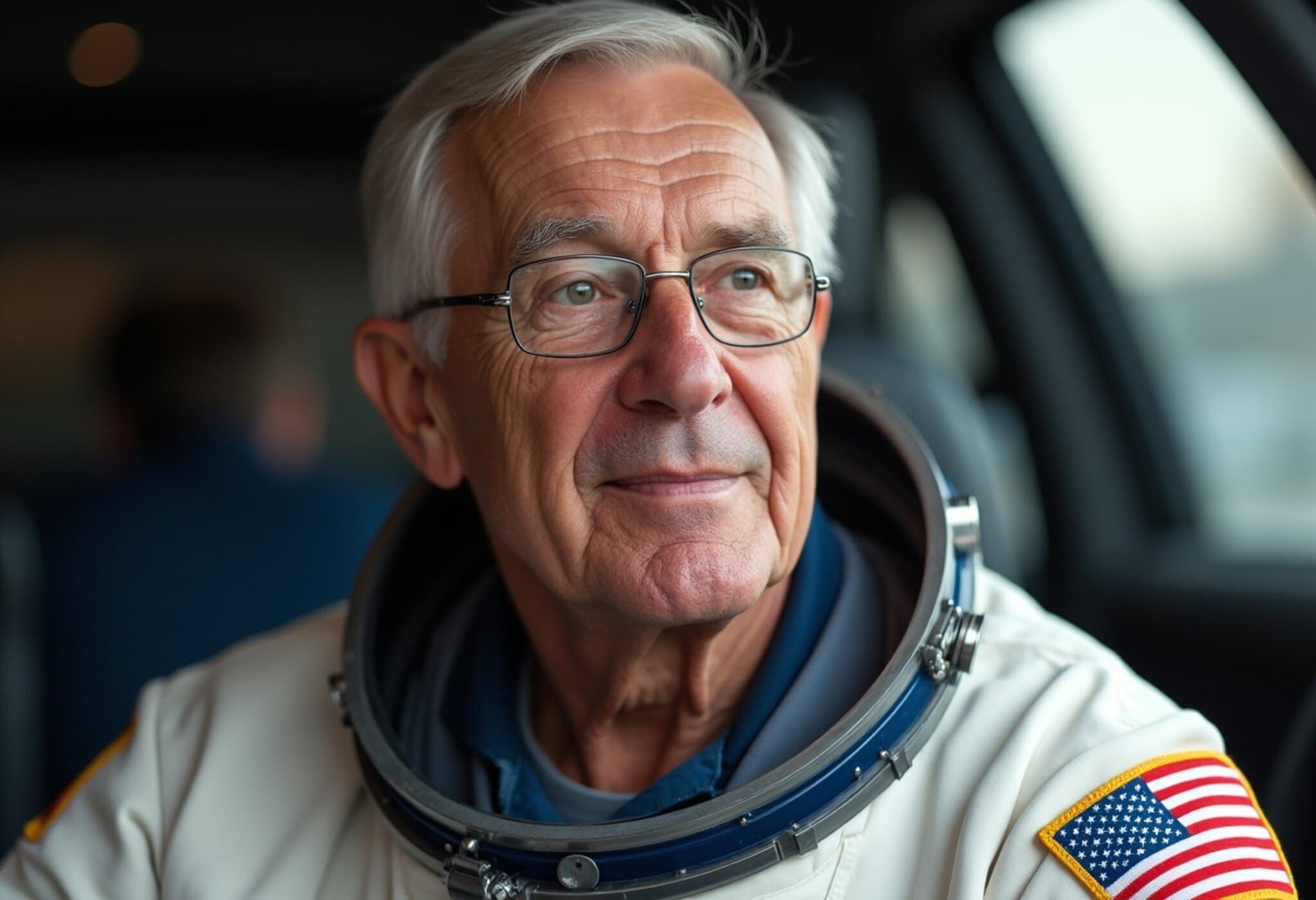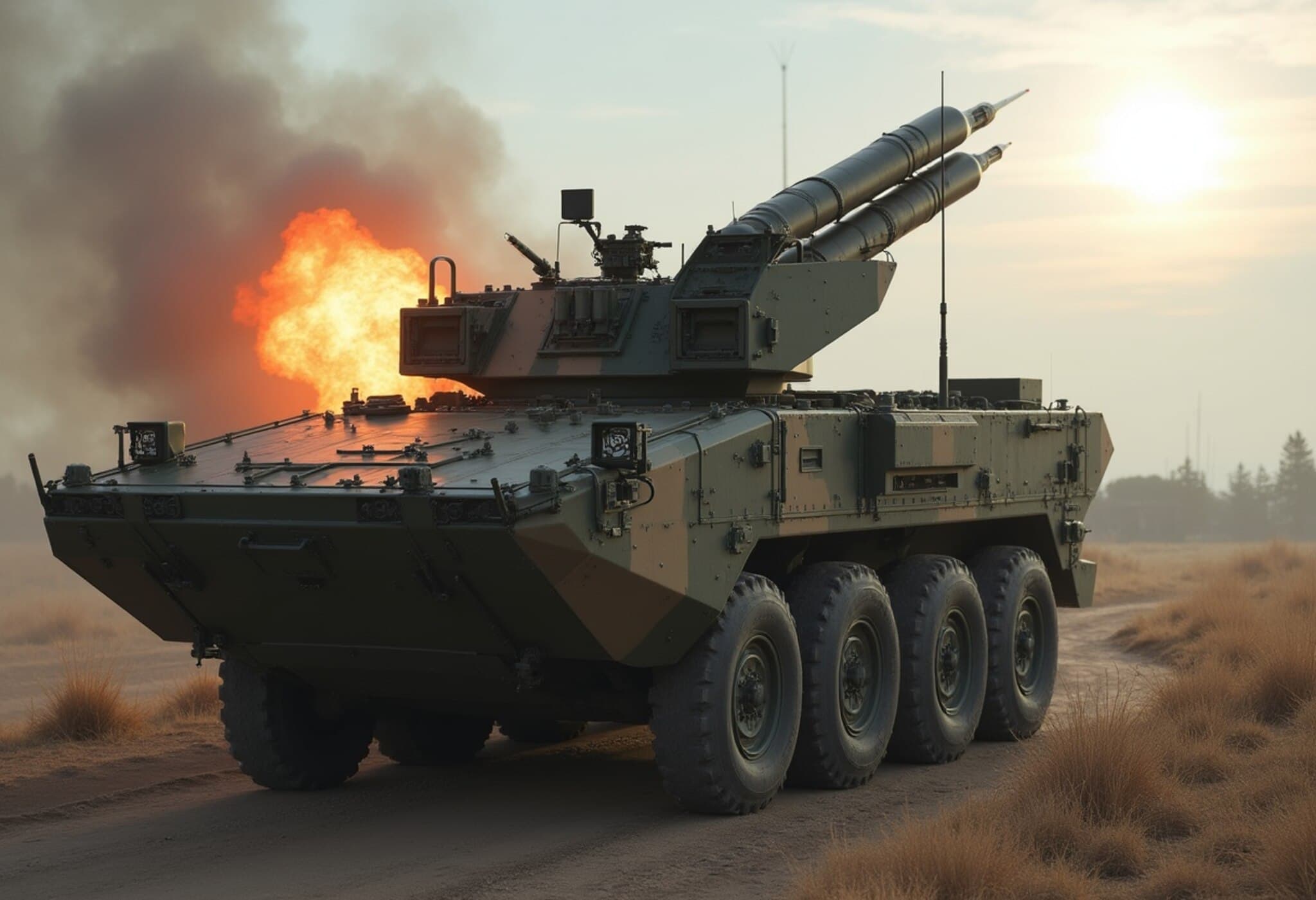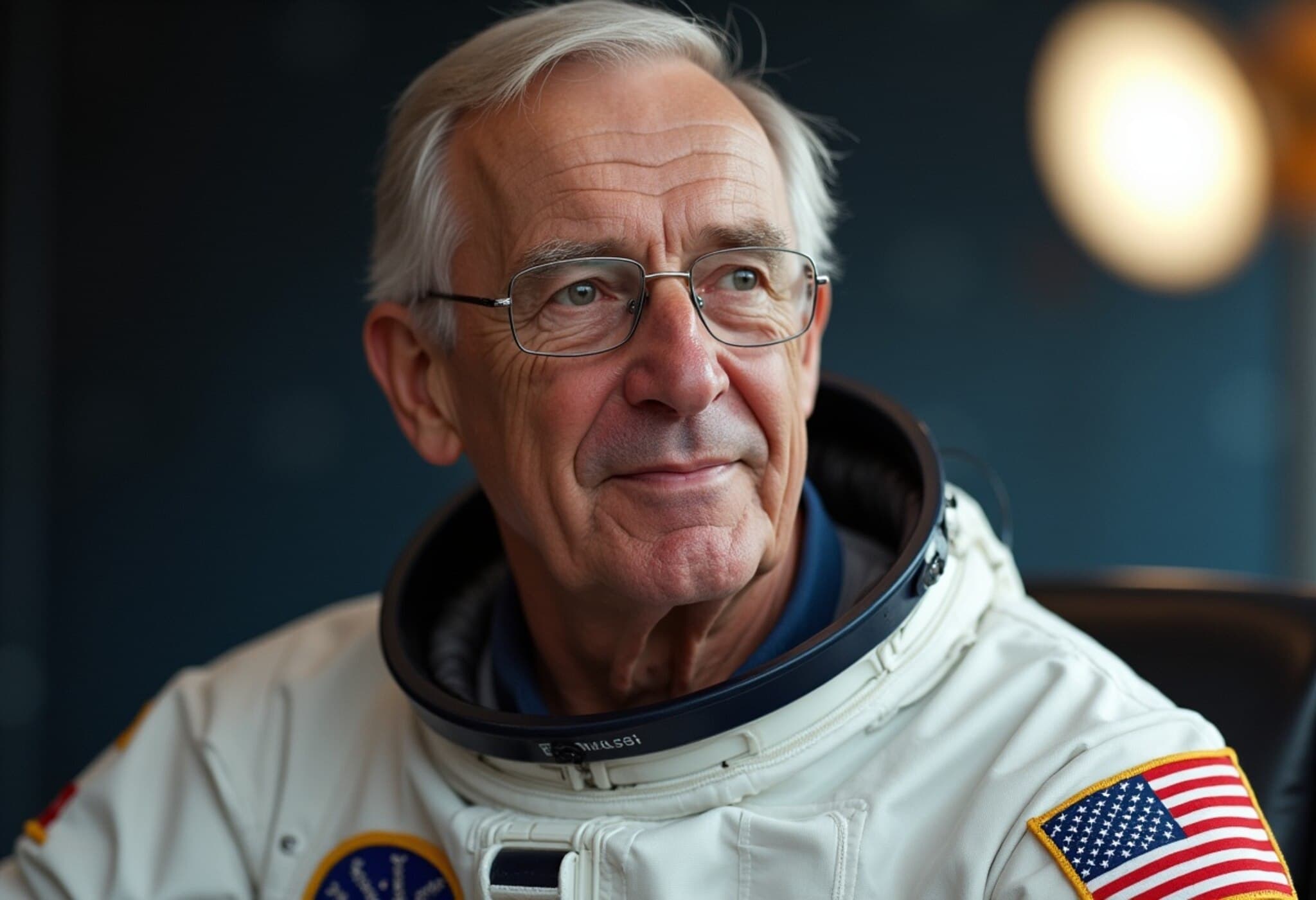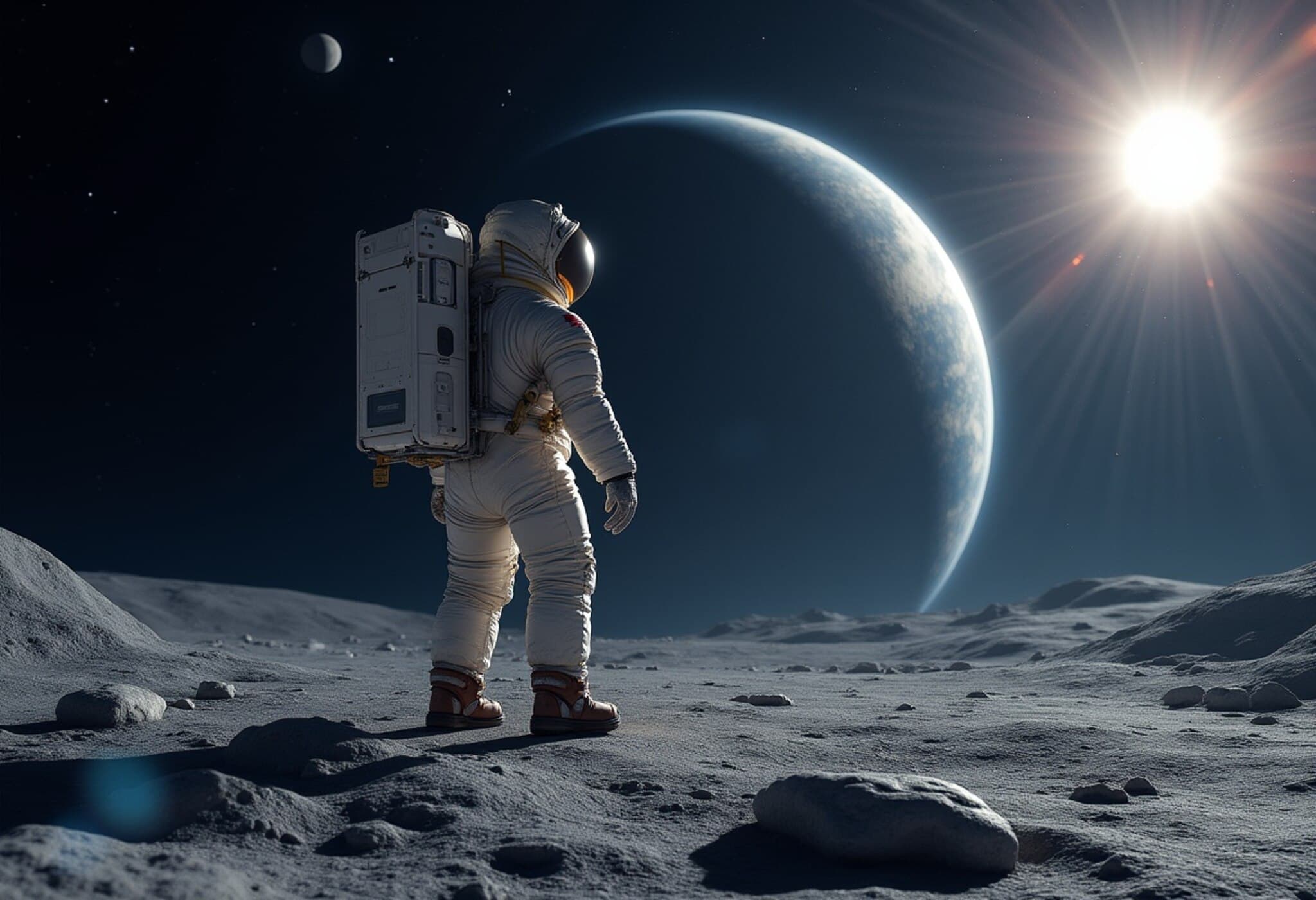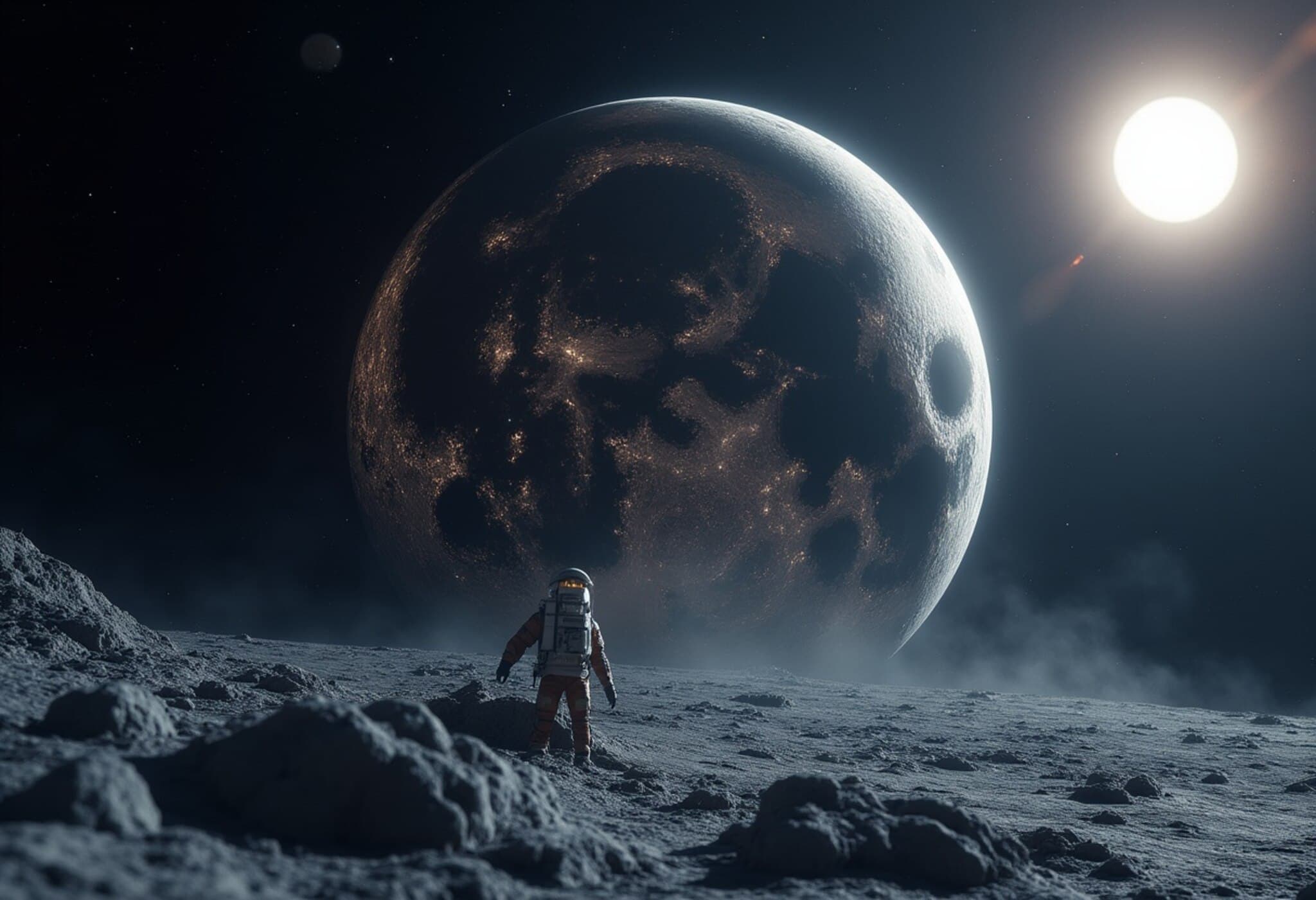Remembering Jim Lovell: The Man Behind Apollo 13’s Harrowing Journey
Jim Lovell, the revered astronaut who commanded the Apollo 13 mission—the NASA odyssey immortalized as a triumphant tale of survival despite near catastrophe—has passed away at the age of 97, NASA announced. Lovell’s legacy extends well beyond the iconic phrase popularly attributed to him; his leadership and calm under pressure exemplify the grit of American space exploration during the Cold War era.
The Real Story Behind a Famous Phrase
While Hollywood famously rebranded the line as “Houston, we have a problem,” it was actually Lovell’s crewmate, Jack Swigert, who first radioed “Houston, we’ve had a problem here.” The 1995 film Apollo 13, starring Tom Hanks as Lovell, captured the intense drama of the April 1970 mission, which was intended as the third human landing on the moon but was abruptly aborted after an oxygen tank explosion.
A Mission Marked by Ingenuity and Human Spirit
Lovell, alongside astronauts Jack Swigert and Fred Haise, faced freezing temperatures, dwindling supplies, and life-threatening technical failures during their desperate return journey. The crew’s ability to collaborate with NASA engineers on Earth—turning the lunar module into a lifeboat—showcased some of the most ingenious problem-solving in spaceflight history.
- Explosion causes: An electrical fault in an oxygen tank caused a critical failure 320,000 kilometers from Earth.
- Life support challenges: Carbon dioxide buildup and power shortages threatened the crew’s survival.
- Survival tactics: Improvised carbon dioxide filters and power conservation measures were crucial.
Lovell described the mission as a “successful failure” — a profound testament to human resilience that transformed a likely tragedy into a monumental achievement.
From Naval Pilot to Iconic Astronaut
Born in Cleveland in 1928 and raised in Milwaukee, Lovell’s space dreams took flight after his graduation from the U.S. Naval Academy in 1952. As a test pilot and seasoned astronaut selected in 1962, he pioneered significant space milestones:
- Gemini Missions: Spearheaded the first docking of two crewed spacecraft during Gemini 7 and concluded with Gemini 12, cementing his expertise in extravehicular activity.
- Apollo 8: Commanded the first mission to orbit the Moon in 1968, culminating in a Christmas Eve broadcast reading from the Book of Genesis that captivated millions globally.
Though Apollo 13 curtailed his chance to walk on the Moon, Lovell’s contributions to space exploration remain extraordinary. Post-NASA, he applied his leadership in maritime towing and telecommunications, sharing his story through his autobiography, Lost Moon: The Perilous Voyage of Apollo 13, which provided the foundation for the celebrated film.
The Enduring Legacy of Apollo 13 and American Space Innovation
Apollo 13 symbolized the boldness and vulnerability of humans venturing beyond our planet. Its lessons influenced NASA’s approach to mission safety and crisis management—principles still relevant as humanity prepares to return to the Moon and eventually journey to Mars.
Tom Hanks, who portrayed Lovell in the film, paid tribute on social media, honoring Lovell as a man who led others to explore the unknown, driven not by fame or fortune but by the very essence of human curiosity and courage.
Reflecting On a Life That Inspired Generations
Lovell’s story resonates deeply even decades later, reminding us that in moments of crisis, innovation and teamwork can rewrite fate. His death invites reflection on the human dimension of space exploration—a pursuit combining high technology with unyielding hope.
NASA’s statement announcing Lovell’s passing, without specifying a cause, marked the end of an era but also renewed appreciation for pioneers who shaped space history amidst profound geopolitical tensions and technological frontiers.
Editor’s Note
Jim Lovell’s legacy is a tapestry of courage, intelligence, and humility. As the United States charts ambitious plans for lunar and Mars exploration, his story serves as a blueprint for overcoming adversity through collaboration and calm ingenuity. Readers might ponder: How can today's space community balance rapid innovation with the painstaking reliability that saved Apollo 13’s crew? And, in a broader sense, what lessons does Lovell’s journey hold for confronting unforeseen challenges here on Earth?

